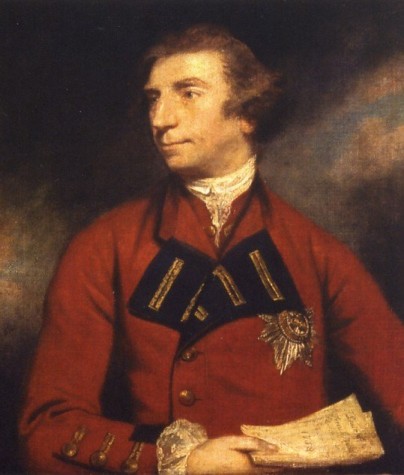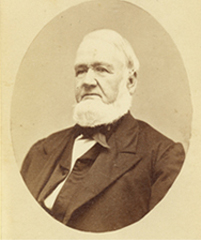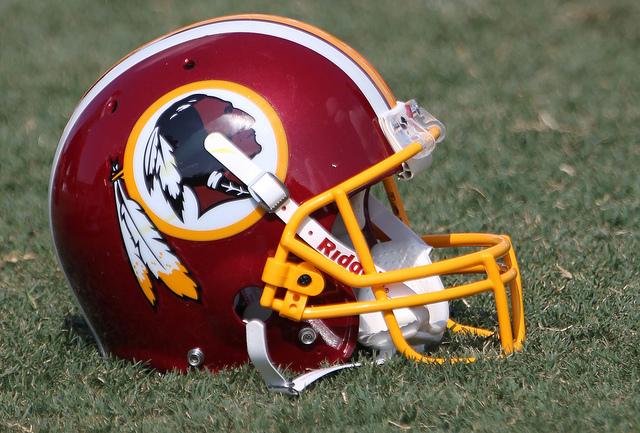Pride vs. Predjudice
Native American Mascots and Williston College
March 27, 2015
Throughout America, professional sports teams, colleges, high schools, and other organizations use names and symbols linked to American Indians. While many of these institutions have changed nicknames and logos that were thought to have been offensive, many still remain. In the twenty-first century, organizations will need to decide whether they will let their pride cause unforeseen prejudice.
In the fall of 2013, President Obama took a stance in opposition to the National Football League team the Washington Redskins and its logo. The Washington Post reported in October of that year that the President had told the Associated Press that if it were up to him, he would change the name.
Obama said, “If I were the owner of the team and I knew that there was a name of my team — even if it had a storied history — that was offending a sizeable group of people, I’d think about changing it.”
Dan Snyder, owner of the Redskins since 1999, has tried to put end to any discussion of his football team changing its name. Snyder told ESPN.com in August of 2014, “It’s just historical truths, and I’d like them to understand, as I think most do, that the name really means honor, respect.” To back his point historically, Snyder referenced that the team was named after the team’s first coach honoring his American Indian heritage.

The namesake of the Redskins, William “Lone Star” Dietz.
Despite the negative connotations many Americans believe the name “Redskins” has, Snyder believes that when attached to his football team, it cannot be viewed that way.
“A Redskin is a football player. A Redskin is our fans. The Washington Redskins fan base represents honor, represents respect, represents pride,” said Snyder. He also told ESPN, “Taken out of context, you can take things out of context all over the place. But in this particular case, it is what it is. It’s very obvious.”
Prominent politicians such as Attorney General Eric Holder Eric Holder, potential 2016 presidential candidate Hillary Clinton, and Maryland Governor Martin O’Malley have voiced their opposition to the team’s name.
The United States Patent and Trademark Office prevented Washington from trademarking their logo in June of 2014. The Office said that they would not let the trademark go through as they find it “disparaging to Native Americans.” The team has appealed the decision and said they believe the USPTO’s decision will be overturned.
In 2014, the University of Pennsylvania National Annenberg Election Survey polled 768 people who identified as Indians or Native Americans from across America. The poll asked this select group whether they found the Washington Redskins’ name offensive. Ninety percent of these people said that the name “Redskin” does not bother them. Just nine percent said that they find the name offensive.
Kathleen Brown-Perez is an Assistant Professor in the Commonwealth Honors College at the University of Massachusetts Amherst. A licensed attorney in Massachusetts and Arizona, Ms. Brown-Perez currently serves as a consultant to law firms in Boston and New York that are representing tribes that are suing the federal government. She is a member of the Brothertown Indian Nation located in Wisconsin. She has often dealt with issues surrounding the identity of American Indians.
Ms. Brown-Perez expressed in a recent interview that the name “Redskins” is the “most offensive example” of Americans “appropriating all things ‘American Indian’ for their use.”
Ms. Brown-Perez said, “Redskins is the American Indian equivalent to the n-word for African Americans. A lot of people tell us we should ‘get over it’ or that we shouldn’t be bothered by it, but that is because they cannot relate to what our people have gone through.”
Ms. Brown-Perez expressed the sentiment that those who are not American Indian should not be able to decide whether or not a term such as “Redskin” is offensive.
“This is an issue American Indian people deal with on a more personal level. It is offensive, and no one to whom that phrase would never apply has a right to tell those of us to whom it does apply that we should ‘let it go.’”

Blackhawks player Duncan Keith wears a Blackhawks jersey.
Ms. Brown-Perez objection to the use of Indian American names and logos is not universal. For example, she is not bothered by the use of “Blackhawks” the name of Chicago’s National Hockey League team.
Ms. Brown-Perez says that American sports teams “using a derogatory term to represent a sport’s team-and make money off it – is inexcusable.”
American Indians have faced systematic persecution and decimation since the arrival of Europeans onto the American continent. The U.S. federal government has moved tribes out of their lands and given them the ultimatum of either assimilating into popular American culture or moving to the obscure outskirts of America. Unlike other minorities in the U.S., American Indians are often overlooked and go unrecognized in our daily lives. Despite the controversy around the concept of using Indian names and images to represent organizations, could it be a positive influence on American society to have these names and logos remind us that many tribes still exist?
Ms. Brown-Perez says, “Definitely not. We do not need sports teams to remind people we exist, especially since these caricatures give people the idea we are always fighting.”
She does not see any way in which these names and logos inform American society of American Indians’ cultures. In fact, the use of Indian mascots has a negative influence on the lives of young American Indians.
A study titled “Missing the Point” done by the Center for American Progress that was released in July of 2014 reported that “the presence of [American Indian] mascots directly results in lower self-esteem and mental health for [American Indian] adolescents and young adults.” The study mentioned that the American Psychological Association called for the “immediate retirement of All American Indian mascots, symbols, images, and personalities, by schools, colleges, universities, and organizations” about ten years ago.
Just across the Connecticut River from Williston exist two colleges that have handled having their name and logo associated negatively with American Indians very differently. Until 1972, UMass’ athletic teams’ mascot was the Redmen. In 1972, an American Indian group wrote to the university telling it that their mascot had “defamatory” connotations, ones that the university probably would not wish to have connected to it. That same year, the UMass Student Senate held a vote and Minutemen was soon chosen as the new mascot. Selecting a name like the Minutemen, who were a militia group during the Revolutionary War, allowed the university to disconnect itself from any negative racial connotations and connect itself with a patriotic symbol.

Lord Jeffrey Amherst, the namesake of Amherst town. Amherst is believed to have committed acts of genocide against Native Americans.
Moreover, the town of Amherst is named after Lord Jeffery Amherst. Serving as a Field Marshal and Commander-in-Chief of the Forces, Amherst played a vital role in defeating the French in the French and Indian War, securing North America for the British. Amherst’s name, however, has often been linked to the decimation of Indians. It is believed that Amherst, to suppress attacks from Indians on the frontier, distributed smallpox-infested blankets to Native Americans to assist the war effort. But since 1759, the western Massachusetts town has retained the name Amherst.
Just across town from UMass, established in 1821, sits Amherst College, one of the premier liberal arts colleges in the world. Although it uses the name Amherst, the college says that it is named after the town, not the British war hero and Indian killer.
However, the college’s mascot is the Lord Jeffs. Throughout the school’s history, students and faculty have called for the change of the school’s mascot to separate themselves from the perceived negative influence of Lord Jeffery Amherst.
Ethan Corey ’15 wrote in an article for the Amherst Student, the college’s student newspaper, in the spring of 2013, “students, faculty, staff, and administrators met in the Red Room to discuss the possibility of changing the College’s mascot, Lord Jeff, in order to distance the College from Lord Jeffery Amherst’s genocidal legacy.”
Peter A. Nelson is Amherst College’s Archivist. In defense of the town naming itself after Amherst Mr. Nelson says, “Little was known about his brutal attitude toward Native American peoples by that time.”
In the 21st century, it has become more difficult to push the issue of the school’s mascot to the side. While students, faculty, and administrators may have had personal objections to it in the past, it has recently become impossible to ignore.
Mr. Nelson says, “I don’t find much evidence that the college ever considered changing the mascot as seriously as they are doing currently. Until quite recently, the matter was apparently uncomfortable for some, but easy to overlook for many. In my personal opinion, now that Amherst has achieved such a high level of multiculturalism among its students, it is no longer so easy to overlook, and several people have expressed personal pain because of its embrace of this man.”

Samuel Williston (1795-1874), button manufacturer, philanthropist, Amherst College trustee, and founder of Williston Academy.
While Amherst College may not have been looking to escape these criticisms of its mascot in the 21st century, they almost did in the mid-19th century. Facing steep financial troubles in the 1840s, Samuel Williston, founder of Wiliston Academy and a trustee of the College, donated over $220,000 to Amherst College during his life.
Williston Archivist Rick Teller ’70 says of Williston’s philanthropic nature, “Samuel loved the idea of giving to learning institutions and he was willing to do everything in his power to further that cause.”
Williston’s donations to the college not only bailed it out of the financial doldrums, but made the college question whether it should change its name to the Institution to Williston College. At trustee meetings in both 1847 and 1869 trustees wanted to discuss the possible change. While this name change did become a real possibly, Williston himself requested that the college not change its name. This was, in part, due to that he did not want people to think that his donations were in pursuit of having the college his namesake.
With no higher education institution named after Williston, changing Amherst College’s name will only become harder with every passing year. These high schools, colleges, professional sports teams, and other organizations will need to decide if pride will override any perceived prejudice of using American Indian names or images.
